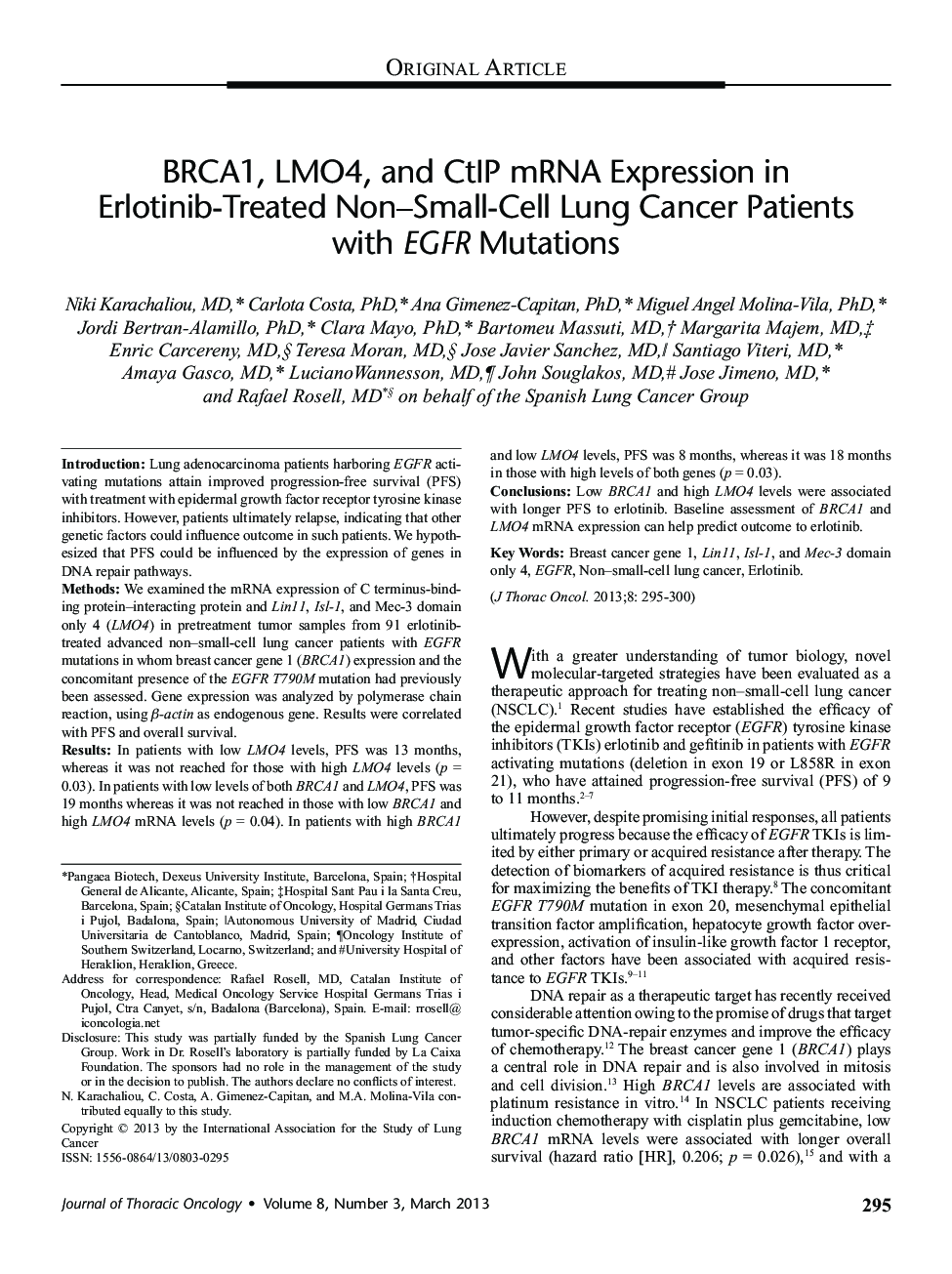| Article ID | Journal | Published Year | Pages | File Type |
|---|---|---|---|---|
| 3990073 | Journal of Thoracic Oncology | 2013 | 6 Pages |
IntroductionLung adenocarcinoma patients harboring EGFR activating mutations attain improved progression-free survival (PFS) with treatment with epidermal growth factor receptor tyrosine kinase inhibitors. However, patients ultimately relapse, indicating that other genetic factors could influence outcome in such patients. We hypothesized that PFS could be influenced by the expression of genes in DNA repair pathways.MethodsWe examined the mRNA expression of C terminus-binding protein–interacting protein and Lin11, Isl-1, and Mec-3 domain only 4 (LMO4) in pretreatment tumor samples from 91 erlotinib-treated advanced non–small-cell lung cancer patients with EGFR mutations in whom breast cancer gene 1 (BRCA1) expression and the concomitant presence of the EGFR T790M mutation had previously been assessed. Gene expression was analyzed by polymerase chain reaction, using β-actin as endogenous gene. Results were correlated with PFS and overall survival.ResultsIn patients with low LMO4 levels, PFS was 13 months, whereas it was not reached for those with high LMO4 levels (p = 0.03). In patients with low levels of both BRCA1 and LMO4, PFS was 19 months whereas it was not reached in those with low BRCA1 and high LMO4 mRNA levels (p = 0.04). In patients with high BRCA1 and low LMO4 levels, PFS was 8 months, whereas it was 18 months in those with high levels of both genes (p = 0.03).ConclusionsLow BRCA1 and high LMO4 levels were associated with longer PFS to erlotinib. Baseline assessment of BRCA1 and LMO4 mRNA expression can help predict outcome to erlotinib.
